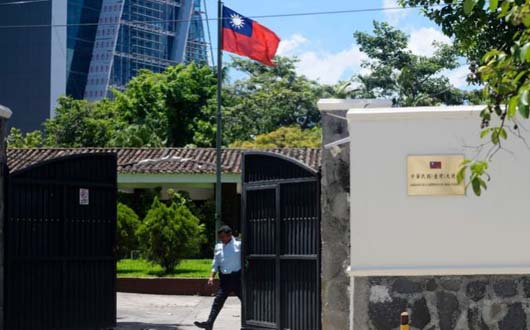WASHINGTON, Sept 8, 2018 (BSS/AFP) – The United States on Friday recalled
its envoys to three Latin American countries that recently switched
diplomatic ties from Taiwan to China, saying it would hold consultations with
the diplomats.
The move comes after Washington accused Beijing last month of destabilizing
cross-Strait relations and engaging in a campaign of “political interference”
by poaching Taiwan’s allies in the western hemisphere.
“The Department of State has called back the US Ambassador to the Dominican
Republic Robin Bernstein, the US Ambassador to El Salvador Jean Manes and the
US Charge d’Affaires in Panama Roxanne Cabral,” a statement said Friday.
“Our three chiefs of mission will meet with US government leaders to
discuss ways in which the United States can support strong, independent,
democratic institutions and economies throughout Central America and the
Caribbean,” it added.
Taiwan and China have been engaged for years in a diplomatic tug-of-war in
developing countries, with economic support and other aid often used as
bargaining chips for diplomatic recognition.
Beijing sees self-ruling, democratic Taiwan as part of its territory to be
brought back into the fold and has not ruled out using force to do so.
Relations between Taipei and Beijing have worsened since Tsai Ing-wen came
to power in 2016 as her government refuses to acknowledge that Taiwan is part
of “one China.”
El Salvador, which switched its ties in August, became the fifth diplomatic
loss under Tsai’s presidency and the third this year.
But while most countries have established formal relations with Beijing
rather than rival Taipei in recent decades, Taiwan still has unofficial
relationships with powerful countries.
Its most important unofficial ally is the US, which remains Taiwan’s
leading arms supplier, despite switching diplomatic recognition to Beijing in
1979.
Ties have warmed between the US and Taiwan in recent months, incensing
Beijing.
Some analysts saw the poaching of El Salvador as an indirect slap in the
face to President Donald Trump’s administration and a warning against further
friendly overtures.



